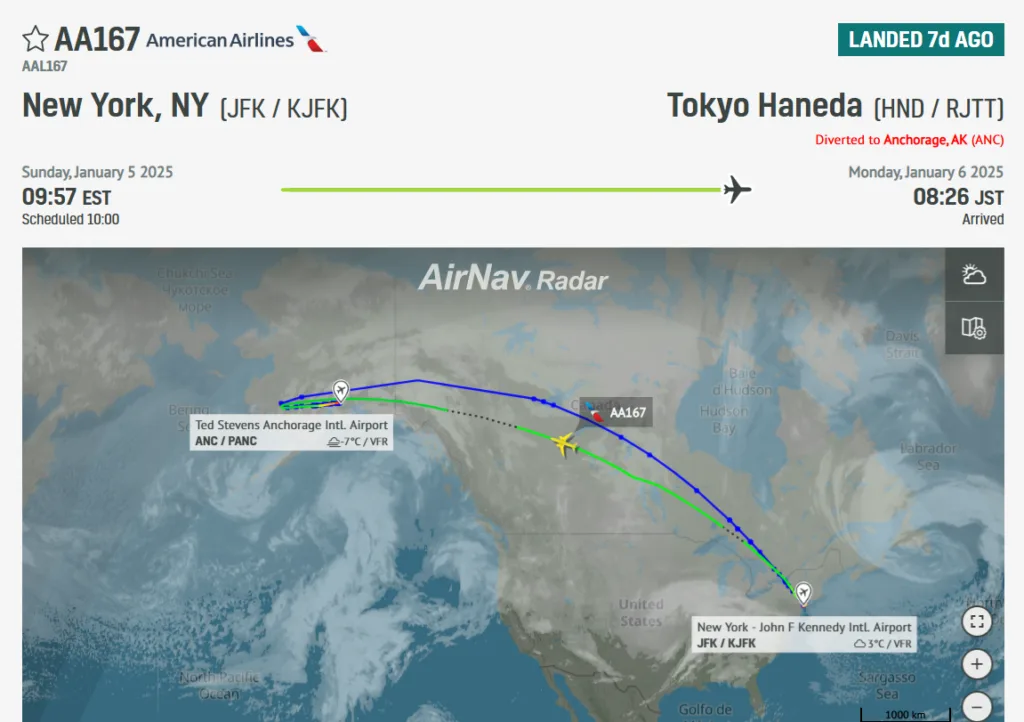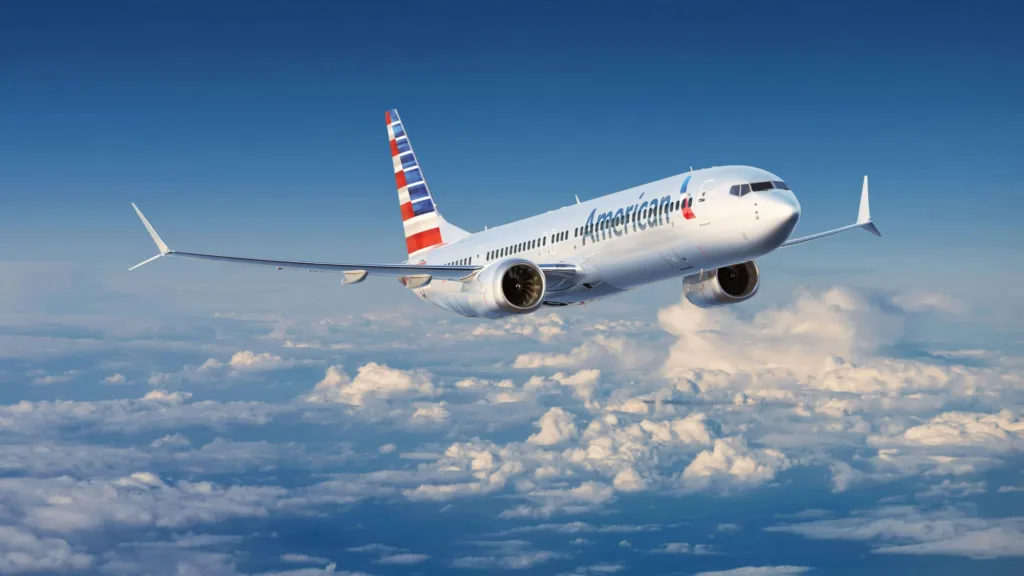On January 5, 2025, an American Airlines Boeing 787-9 operating flight AA167 from New York (JFK) to Tokyo Haneda (HND) was forced to divert to Anchorage (ANC), Alaska, due to a disruptive passenger in Business Class.
Flight AA167 was midway through its 14-hour transpacific journey when the passenger’s behavior escalated, posing a safety risk to passengers and crew.
The Boeing 787-9, with registration N840AN was en route to Tokyo with over 200 passengers when the incident occurred. Flight attendants reported that the passenger, identified as Robert Solesky, displayed signs of severe intoxication and repeatedly ignored safety instructions, forcing the Captain to make the emergency landing in Anchorage.

What Happened Mid-Flight?
Approximately eight hours into the flight, Solesky attempted to access the Business Class restroom near the cockpit. Struggling to open the door due to his intoxication, he reportedly began banging and kicking it so loudly that the noise was audible inside the cockpit.
When a flight attendant intervened to assist him, Solesky allegedly became physically aggressive, grabbing the crew member’s jacket lapels. Concerned for cabin safety, the crew instructed him to remain seated and restricted access to the front lavatories.
Despite these instructions, Solesky repeatedly attempted to move to the front of the aircraft. The Captain personally left the cockpit to speak with Solesky’s wife, who agreed that a diversion was necessary to ensure safety.
Family members traveling with Solesky tried to restrain him, but their efforts proved ineffective. As Solesky continued to defy instructions, the Captain decided to divert to Anchorage.

Emergency Diversion to Anchorage
As the flight neared the Bering Sea, the aircraft made a U-turn toward Anchorage, prioritizing passenger and crew safety. Upon landing, law enforcement officers immediately boarded the plane and detained Solesky.
Statements were collected from flight crew members and witnesses before the aircraft was cleared to resume its journey.
The diversion resulted in a three-hour delay, with the flight eventually arriving in Tokyo without any additional incident.

Federal Charges Filed Against the Passenger
Following his removal, Solesky was charged by the FBI with interfering with flight crew members, a federal offense punishable by up to 20 years in prison and a fine of $250,000. The affidavit filed in an Alaskan court highlighted the severity of the incident, describing how Solesky’s actions endangered the safety of the flight.
In addition to potential criminal prosecution, Solesky also faces possible civil lawsuits from American Airlines to recover the costs of the diversion. These expenses may include additional fuel, crew overtime, and passenger accommodations.
Growing Concern Over Unruly Passenger Behavior
This incident is part of a concerning trend of disruptive passenger behavior on scheduled flights. Such actions not only delay operations but also jeopardize the safety of everyone on board. Airlines and aviation authorities have been increasingly vigilant, enforcing strict measures against unruly passengers.
The diversion of American Airlines flight AA167 highlights that the disruptive behavior of passengers not only causes inconvenience but also creates potential safety hazards.
Airlines must continue to prioritize safety by taking decisive action against unruly passengers, while travelers must recognize the serious consequences of misconduct en route to their destination.

